For lyrical emcees, Jerry Beeks and Ollie Miggs, embodying the borough in NYC that bred them holds a hefty price that comes along with the name. As Bronx Slang, it seems they’re both up for the challenge of waving the BX flag with the latest The Bronx Kill Mixtape (Fabyl Records). The release follows up last year’s self-titled debut album, which is filled with heady and clever lyrics, juxtaposed over infectious beats. While Miggs & Beeks probably wouldn’t classify themselves as political emcees, the lyricism both offer up are filled with clashes of culture witnessed through their surroundings.
Bronx Slang slings words around heavy beats that circle and hark back to the golden age of Hip Hop, filled with that Boom Bap that many have never relinquished. In Bronx Slang’s case, it’s updated for a generation that may be unprepared for it. Bronx Slang carefully paint these musical canvases with a plethora of imagery through the urgency of Beeks and Miggs’ words. The grittiness of their surroundings is easily captured as listeners are taken on a journey through urban streets filled with graffiti-ridden walls of steel & concrete. Miggs & Beeks take what they know and work from the ground up.
This year, it’s difficult to ignore the elephant in the room, a pandemic that surrounds us all. Bronx Slang makes mention of it on the Mixtape stating, “Nah, I didn’t think we should put out an album during a pandemic. People are busy surviving… they’re too preoccupied with surviving.” Discussing NY, more specifically the Bronx, they mention small things go much further than some may expect. Refrigerators have been placed, designated in specific spots on streets, enabling those who are destitute or just hungry, the ability to feed themselves.
Reflecting on the duo’s first album, specifically on the morose “Excuse Me Officer,” which gets deeper than the deepest Jacque Cousteau could ever be. Names are mentioned throughout, just a few names of the many killed at the hands of the police. It’s a heavier song that strikes a chord, but we’ll get into that later.
Ghettoblaster: Let’s start at the beginning. Take us back to your first meeting.
Beeks: Well we’ve known each other since we were teenagers. Growing up in the Bronx, we had a mutual friend, Jay Nice, so Miggs would come through my neighborhood, I lived Co-Op City, and Miggs lived over near the Bronx Zoo. He’d come to Co-Op City, we’d play a lot of basketball, stuff like that you know, hang out and stuff, and that’s how we first met. Then probably years down the line after we finished high school, in the middle of college, Miggs got into a band called “Shooter’s Groove” that had two record deals was a working band, had a decent fan base, a good fan base, and I was here in Co-Op in the Bronx, in the neighborhood rap, doing my thing with local crews and stuff like that. So, once again, that mutual friend, Jay Nice, he kind of brought us together, and you know, we didn’t form a group at first, but we would write together and stuff, do things together. And it was all in the midst of hanging out, you know, just chilling, and then it grew into an opportunity where Jay Dell came along with an opportunity for us to do a song for Neymar.
Beeks: He had a campaign going for Poker Stars, and they were looking for a song to put to a video of him hanging out with his friends playing poker. We submitted a song and it was picked and they did the video. It’s on YouTube now, it’s up to like half a million views. The song’s called “Poker Stars” and from there we formed the Bronx Slang and started on this journey.
How long have you guys been emceeing?
Beeks: Since I was banging on the desk in 2nd grade. Trying to imitate The Cold Crush, like you know…
GB: (laughs) ok.
Miggs: I mean (laughs) decades. Decades.
GB: So I guess it’s easy to say you’re influences go way back, because you mentioned Cold Crush.
Beeks: Oh yeah, definitely way back. Sure.
GB: So when did you, well, actually, like I mentioned before, using “Bronx” in your name is kind of a lot to live up to. Did you guys take that into account?
Beeks: Not at all. I had just done an album, going on 20 years called “Wall of Sound” with Mad Magic, working with the producer we’re working with right now, Fake Blood, when he was Touché. It was the first label I was on as a solo artist, Cherry Beats, and the first single off of that album was called “Bronx Slang.” So when we were bouncing around with a name to use, coming up with a name for the group or the duo, that seemed like a likely choice because it kind of described what we’re doing, who we are, and where we come from. You know, there was a lot that went into that one name we chose. We never looked at it like “Aw you know we reppin’ the Bronx.” That sentiment just kind of comes naturally when you grab the mic. Because of where we’re from and who we are. But we never looked at it like why we called ourselves Bronx Slang, to put more pressure on ourselves or anything like that. That never even crossed my mind.
GB: Miggs you want to elaborate?
Miggs: Yeah, I was going to say, to what Beeks was saying, the love of the Bronx and reppin’ the Bronx is just kind of implied with us, and it always has been. There’s a lot of pride there from the Bronx. We get shit on a lot for so many things, there’s a lot of fucked up shit IN the Bronx, but Hip-Hop is our shining jewel, our crowning achievement, you know what I mean? That’s something we really hang our hats on as far as the art form. And we saw it first hand growing up. It was just there, then to see what it became – there’s definitely a lot of pride in that. But like Beeks was saying, we’re not saying “we’re from the Bronx, we rep that, everybody else ain’t shit,” you know what I’m saying? But it’s a source of pride, no doubt.
Beeks: So we kind of grew up on Hip-Hop, the Bronx… I mean, Hip-Hop, the Yankees, and pizza. Am I right? When you think about it.
Miggs: Yeah, we’re really proud of all these things.
(laughs)
GB: That’s one thing I miss about the Bronx, that NY pizza, you know, you can just grab a slice, walk down the street, eat, and finish it before you get to the subway. So on the mixtape you released, back in October, right? You opted to release that instead of an album, you even mention it, on it, that you’re releasing it because of the pandemic. You even say, people, they’re too preoccupied with surviving. Do you want to elaborate on that a bit more? I still see a lot of people dropping albums left and right. Even though I kind of agree with you guys, that it’s really not the right time for it, because people can’t always spend money on it like that.
Beeks: Exactly. Nevermind the virus, the high rate of unemployment, people are not working, we’ve got food pantries, refrigerators on the street in front of bodegas where you can go and get food for free and stuff like that. Why are you going to try to charge somebody whatever you’re going to charge them for a record, you know? It’s… it’s a little selfish if you ask me. In a way. Why not give them something… The whole thing with the mixtape actually – my idea that was brought to the table was that it should be a free download, which it pretty much was. When the label put it on Bandcamp, it was name-your-price. You could buy it for a penny if you wanted to. So that’s pretty much the same thing but my original thought was “Just release it for free and just give it to people.” Maybe they can jam with it when they’re in quarantine, whatever they’re doing, listen online and stuff.
Miggs: And the attention span shit, you know. People got a lot going on in their lives. And you know, especially the content, we just wanted to give them something of substance, know what I’m saying? Not just something frivolous. And yea. Give it to them for free. No doubt.
Beeks: We also wanted to get some things off our chest about what was going around us, mainly with the way the current administration was handling the pandemic. We didn’t want to go too deep into it but we definitely wanted to reflect on it as much as we could.
GB: What’s funny is that the way you guys deliver it, it isn’t like you’re beating someone over the head with information. I mean, you’re kind of doing it a little tongue-in-cheek, a little humor. Lyrically it’s thoughtful, and the way you present everything… was that the intention?
Beeks: Yeah, we want to entertain, but also we want to try to inform and let people know where we’re coming from.
GB: Alright, I feel you on that. But now, with the mixtape, it was my first experience listening to you guys, and so obviously that forced me to move backward, and listen to your 2019 album, and I gotta say, hearing it, it’s literally track after track of banger after banger.
Beeks: Good lookin’, good lookin’. I’m glad you enjoyed it.
GB: And you know the mixtape, it’s the same thing, lyrically. It’s cleverly done the way you guys word things, I mean even, let’s say, “Excuse me, Officer”, you name names of the deceased at the hands of the police or the justice system. It seems that this year it’s gotten deeper. Year after year it’s just gotten deeper as far as racial tension.
Beeks: And see as far as a song like that, with the upcoming album I did a part two to that song. And it’s all different names.
Miggs: It’s bittersweet.
Beeks: Some of them are new names, some of them are names I couldn’t fit on the first one. But it’s funny, even with that, listen to the new one, there are still names that I left out. There are names that came after I recorded it. So that’s the situation you run into trying to record a song like that. You’re just going to have to keep updating it, and updating it., you know? And even if you do that. I mean it gets to the point, sometimes you’ll record a song, it’s not released for, you know, six months, five months, whatever you’re doing. By then police could have killed 4-5 more unarmed brothers, so…
GB: I definitely feel that. I always reflect back to Amadou Diallo because he was killed a block away from where I grew up. I had already moved out of the Bronx to Brooklyn at that time, but even to this day, that stays in the back of my mind. It keeps happening, no one does anything about it, and it’s everywhere.
Beeks: Me and Miggs, hey Miggs, you remember that? We walked on that block. Like a week, had to be a week after that happened? People sprinkled down the streets. I even ran into a couple of dudes I knew. But I remember… I think the street was closed, but we were able to just walk down the middle of the street if I remember correctly. We just kind of stood in front of his crib and stuff, and you know.
Miggs: Yea you’re right. It’s been going on. It’s very wild, it’s crazy that people are desensitized to it, you know?
Beeks: How long ago was that?
GB: Early 90s? Maybe late 80s? Yeah, it was awhile ago.
Miggs: It took til 2020 again for there to be outrage, to make a lot of noise, you know, we’ll see if anything ever truly becomes of it, but it’s fucking crazy how the list goes on and on. It’s fucking insane.
GB: I don’t want to dwell too much on that, I don’t want to bring you guys down, but on your first album, it’s just embedded deep in NY culture. Like “the Slang shot Cyrus,” where you use The Warriors film for inspiration on “Karate Man Bruises On the Inside.” I thought that was masterfully done. How important is it for you to let listeners know it’s more than a Bronx thing?
Beeks: What we do kind of comes naturally. Like The Warriors thing, I thought of that, it just kind of came to me. I was always a big fan of the film and it’s a cult classic of course, but a lot of what you hear, like that Warriors thing, that comes out of experience. That comes out of writing rhymes for years, writing story rhymes, how can I flip this to make this sound different, how can I do this to make this sound unique, and just thinking of different ways to do different things – fresher ways to do them. Not try to copy. You know, believe it or not, especially after the last few years, I don’t really listen to a lot of rap music at all. When I’m in the car, I listen to like, talk radio, sports radio, and stuff like that.
Anybody I’ve been listening to lately, that’s like a lot of the stuff Black Thought’s been doing, because that’s the only kind I can really get into. Not to knock what anybody else is doing, I think it’s great, a lot of people are successful at what they’re doing, but I just don’t really make time to listen to a lot of Hip-Hop and I think that helps out. When we’re trying to put songs together, trying to think of concepts of songs, because you don’t want to just imitate anybody, subconsciously imitate anybody, it just spurs original thought.
Miggs: And when you take it like that, that approach we do, I like Beeks don’t listen to a lot of current hip hop stuff. What comes through is, and what we are is, in essence, kind of a throwback, right? A lot of people say Golden Age or whatever, of Hip-Hop, that’s for other people to decide. So, you know, all that NY bravado, to answer your question more, reppin’ is intertwined into who we are as emcees.
GB: Right, right. And I feel you on the whole Golden Age and all that. I was thinking yeah, it’s Golden Age but it’s done with a 2020 twist, and it does have that NY swagger. It’s more current, it’s more contemporary. What you guys are doing isn’t just a throwback.
Miggs: Right, right, right.
GB: So your latest single, “Copy That,” it was almost like you’re delivering a message, more communicating it the way law enforcement would. I’m assuming that was the goal?
Beeks: Kind of. In a way. One thing, when we do a song, people will grab their own perspective about it, instead of just saying this is what the song is exactly about. And “Copy That” was more just to get the message out that we’re under attack now with this, and the police are kind of picking up on that. And they’re moving forward with their agenda, we need to move forward with our agenda, we need to make sure we’re safe, we need to be aware, we need to be “woke” – you know everybody loves to wear out that word – we just need to be aware of our surroundings and what’s going on. It’s about survival out here.
Miggs: Matter of fact, type stuff, you know?
GB: You guys were talking about coming up with ideas for songs and everything. Production. How is that handled?
Miggs: The producers that we work with on the current album, coming out soon, are Jay Dell, and Fake Blood, two producers we’ve known for many many years. Way back, I went to England, and I met Fake Blood. My father was doing was work over there and I was just hanging out, and I met Fake Blood. Many years later we still making music. He ended up producing Beeks’ first solo record, and he has a boy, Jay Dell who’s also a producer. That’s how we got introduced to them. Like Beeks said in the beginning, we didn’t start making music with them until a couple years before the first record, we made that song for the advertising campaign. So that’s how we reconnected with them. We got this trans-Atlantic thing happening. Me and Beeks, we write over here, they send us the beats over. Obviously, with the advent of technology it’s not too complicated to make it work, you know? They send us tons of ideas, tons of beats, and we write, we send them back, we just build. That’s how we build.
GB: Alright. That’s great, especially with today’s technology that people can actually do that. I mean I assume that’s how you hooked up with your label, which is also London-based. Fabyl?
Miggs: Yeah, once again that was all with that dude who was in the mix with a London connection, you know. He was looking to put something out. We really are just about getting it out there, it just came together and it was a convenient conduit to make that happen.
GB: Got it, got it. So, what can we expect from the two of you with your sophomore release?
Beeks: Pretty much more of the same, you know. A little different, a little updated. The beats are even better. On the first album, Fake Blood only actually produced two of the songs, the way it’s looking now for this upcoming album, he’s done like half of them, which is about 6 or 7, Jay Dell has done the other half, 6 or 7, and they really went deep into what they do. The beats, the production, is really good. Songs are pretty much the same, just updated about what’s going on around us, but also other different things that we like to talk about. A lot better. The same, but it’s going to be a lot better. We’re looking to call it Volume 2. That’s a working title right now, Bronx Slang Volume 2. That will probably stay the same but that’s about it.


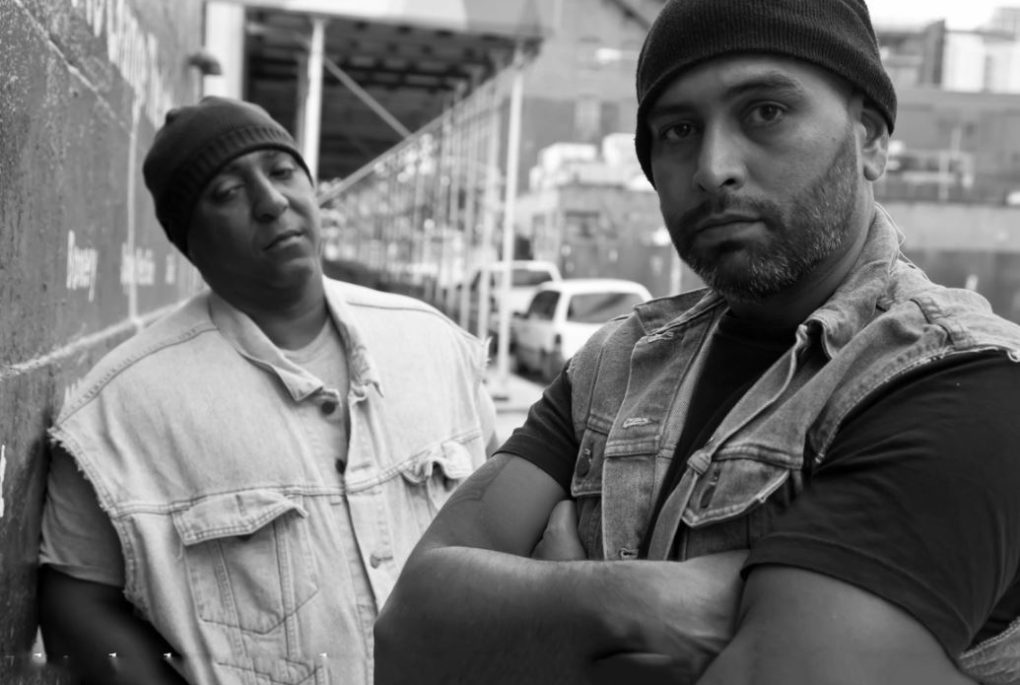
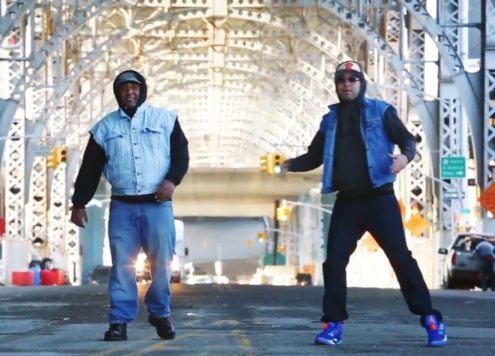
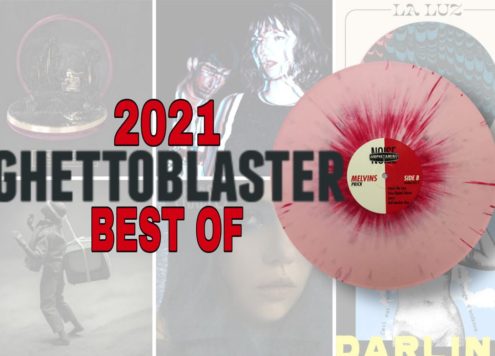
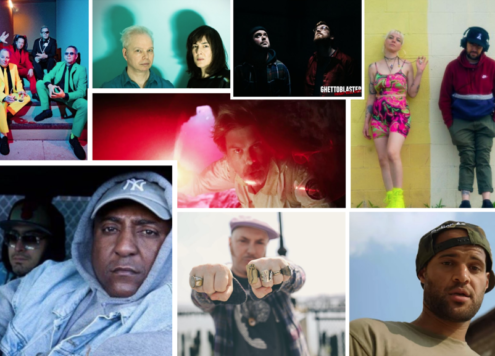

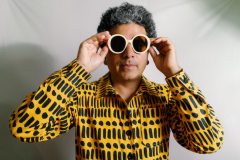
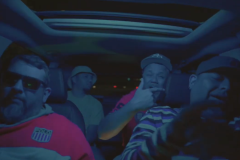
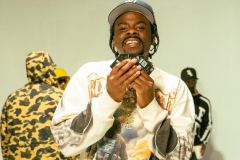
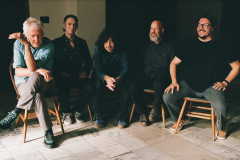

Social Media